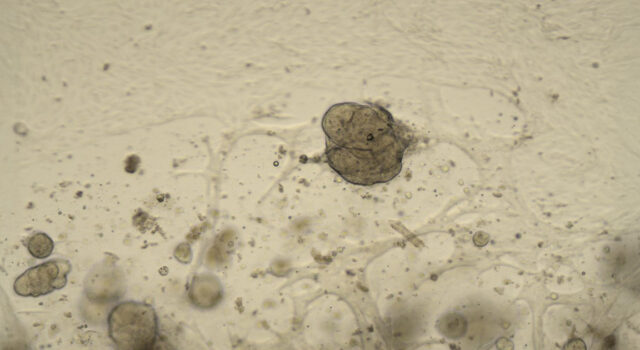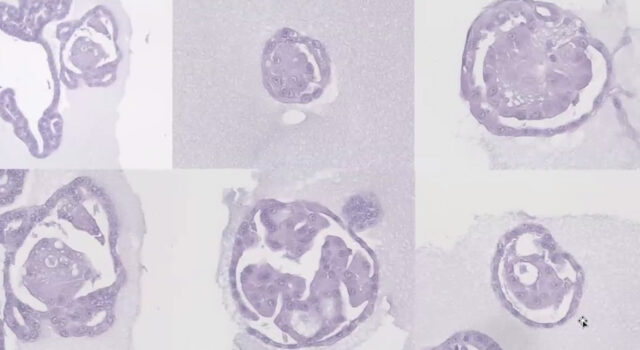The Brave New [Artificial] World for the Study of Chronic Kidney Disease

Imagine a simulated environment in which biomedical researchers can study disease – its occurrence, development, and progression – as well as explore potential treatments to reverse or slow that disease.
Organoids, or artificially grown masses of cells that mimic the biological complexity of natural cells, are the foundation of this environment. To have a meaningful impact on health, organoids need to be an accurate representation of naturally occurring cells. UGA biomedical researchers working in One Health have made it their mission to create this accurate representation. Call it a biological moonshot.
These UGA researchers are starting a new research program that aims to produce accurate organoids of kidney cells for the study of chronic kidney disease (CKD) in humans, dogs, and cats.
“What you are seeing is one of the first images of 3D kidney epithelial cells that can be used to study CKD and investigate new treatments,” said Jonathan Mochel, director of the One Health program at the UGA Biomedical and Translational Science Institute.
CKD affects an estimated 35.5 million people in the United States alone. It is more common in older adults and animals, affecting some 34% of people aged 65 years or older, 35% of older cats, and 10 to 25% of older dogs. While there are methods to slow the progression, there is currently no cure nor any way to repair kidney damage resulting from the disease.
“The organoids we are producing can be used by research labs anywhere as they search for breakthroughs in the treatment of this disease,” said Mochel. “They can also inform the development of more targeted therapies for CKD.”
The research team includes collaborators from select academic institutions across the US and the EU, with support from Ceva Santé Animale. Funding will support graduate student Hannah Nicholson, who will develop her thesis based on this work. If you are interested in learning more about this work and how you might support it, contact Jon P. Mochel at jpmochel@uga.edu


